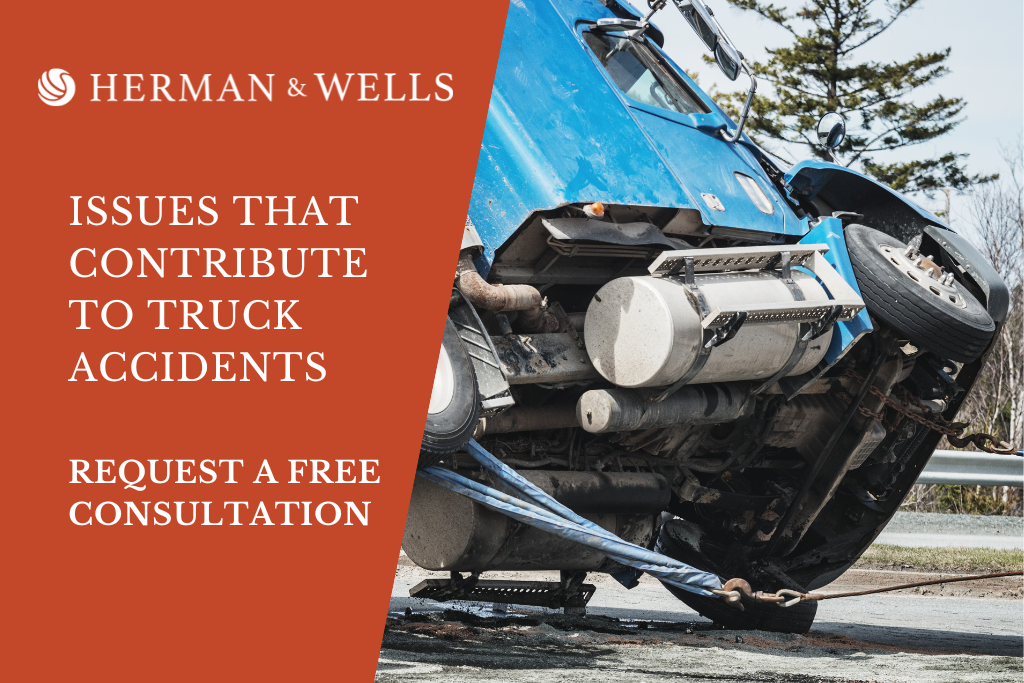The Federal government has written into law that trucking companies put policies in place with the goal of limiting tractor-trailer or truck collisions. Drivers of large trucks or tractor-trailers must be licensed to do so and are required to cooperate in alcohol and drug testing procedures.
Some trucking companies do not comply with these rules, with the result often being truck collisions and innocent people with severe bodily injury. Furthermore, the Federal Motor Carrier Safety Administration (FMCSA) dictates that drivers be limited to a certain number of driving hours per day. Truck drivers who do not get enough sleep can cause collisions. The cause of such truck accidents is referred to as Truck Driver Fatigue. Some trucking companies, however, disregard the safety of their employees and other people on the roads and pressure their drivers to cover more miles in a given day.

The Cliff Notes: Key Takeaways From This Post
- 1Federal government has regulations on truck driver licensing and alcohol/drug testing to limit tractor-trailer or truck collisions.
- 2FMCSA states that drivers must be limited to a certain number of driving hours per day.
- 3Trucking companies can be negligent if they do not comply with federal motor carrier safety regulations.
- 4Truck accidents caused by non-drivers also exist, and damages can be severe when a truck driver negligently causes an accident.
- 5Statutes of limitation may apply in injury claims, so it is important to speak with a qualified personal injury attorney soon after an injury.
Examples of federal motor carrier safety administration rules & regulations:
- Alcohol use is prohibited during or within four (4) hours of driving
- Breath alcohol must be 0.04 percent or below in order to drive a commercial vehicle. This is half the legal limit for Class E Driver’s licenses
- Alcohol and drug testing must be performed post-accident if there is reasonable suspicion of inappropriate use and as a follow-up for drivers who have had problems in the past. They are also performed at random.
- Extensive rules regulate the parts needed for the motor carrier to be considered safe including specific reflective devices, lighting mechanisms, method of battery installation, etc.
- Physical qualifications apply to the drivers. They can be disqualified by high blood pressure, respiratory difficulties, sleep apnea and other disorders.
Clearly, the regulations governing Commercial Driver’s Licenses are complex. There are many ways in which the company, truck manufacturer or driver and his/her supervisors can be negligent. Personal injury lawyer, Herman & Wells, holds a B.S. in Occupational Safety and Health alongside over a decade of experience handling these claims in the St. Petersburg Tampa Clearwater Metro Area. This leads to extensive knowledge of safety regulations and the role insurance companies play in these types of claims. It is crucial that you consider these kinds of credentials when hiring an attorney to handle your trucking injury claim.

What else do you need to know about truck accidents?
Of course, most truck drivers are responsible and never end up in a collision. Furthermore, some truck accidents with semis or tractor-trailers are determined to be caused by people other than the truck driver. However, when a truck driver negligently causes an accident, the damages can be especially severe.
If you or a loved one has been injured or killed in a collision with a semi, tractor-trailer, or other truck, consider all of your legal options. Many large corporations put delivery and schedules ahead of public safety. Do not pay for a corporation’s greed.
Statutes of limitation may apply and can vary by state, so it is best to talk with a qualified personal injury attorney soon after an injury to determine if you have a valid claim.
Herman & Wells has attorneys that are highly experienced in advocating for truck accident injury claims and we offer a free initial consultation.




